News Archive
Check back soon for more blogs and news.
Why should you create an inclusive workplace?
Accessible Somerset – The Importance of Co-Production
Somerset set to Become More Accessible
12 Common Access Mistakes
The Power of Lived Experience
How would you feel if decisions that significantly affect your life were made by people with no idea of your situation, needs or how you feel? That is the reality for many in the Disabled community when it comes to daily living. The world is not designed with Disabled people in mind, and the result is a physical and digital environment that is not accessible or inclusive of 22% of the UK population.
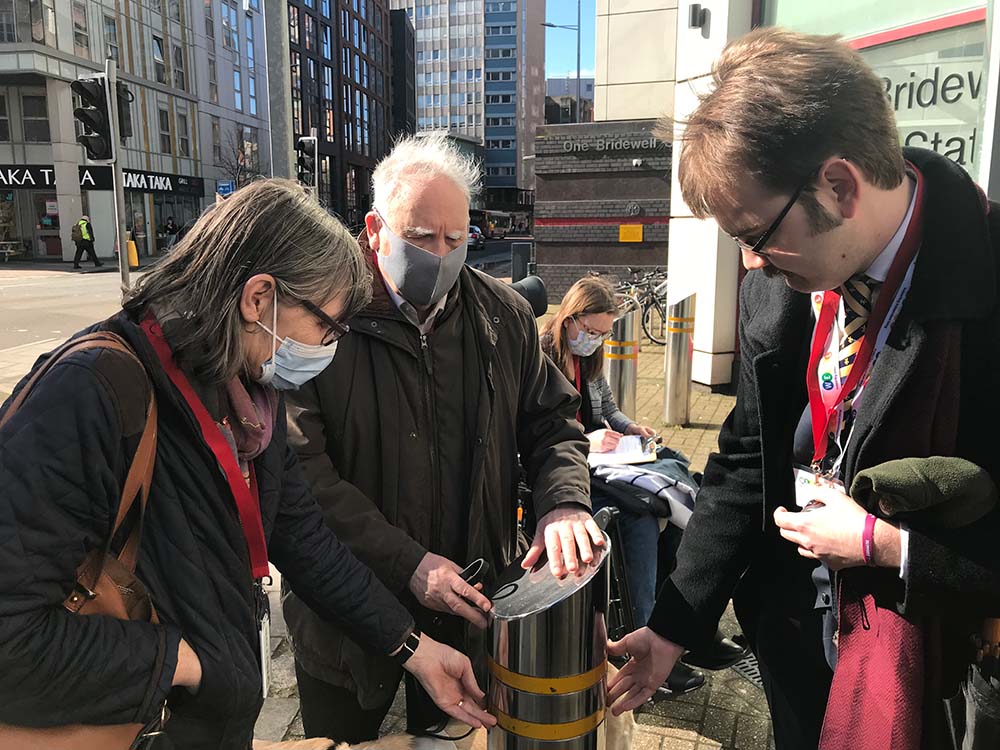
Even when decisions are made to improve accessibility, these are overwhelmingly made by non-Disabled people with zero lived experience. With this comes a severely limited view of what barriers Disabled people face and how to alleviate them – and it is these views that guide local, regional and national policy and decision making.
We need a shift to centering the lived experience of disability in all decision making for businesses and local authorities. Whilst we can’t just knock everything down and start again, listening to and engaging with those that have real life experience of a variety of impairments is the only way to move forward. WECIL, as a user-led Disabled People’s Organisation, centres the lived experience of the Disabled community in everything we do and helps others do the same.
Whether you’re a developer, business owner or local authority, you need to embrace lived experience now or face the consequences in the long run. And as Disabled people, we need you to speak up and share your lived experience to educate and inform wider society. Read on to discover more about the power of lived experience, and how it can help you and your organisation.
The problem
Disabled people and their experience are consistently sidelined in new development projects, business services and staff recruitment. The ONS reported that the disability employment gap is 29%, which refers to the difference between the employment rate of Disabled people compared to non-Disabled. Access consultancy is an afterthought, and people’s access and support needs are pigeon holed into preconceived perceptions of what a disability is. Just think about the symbol of disability, a wheelchair. This hardly represents the range of complex, non-physical and invisible impairments that don’t present themselves in the same way. When the lived experience of Disabled people isn’t prioritised, assumptions are made and services designed by people that don’t actually use those services. The result? Services that don’t work for Disabled people in practice, which means increased costs, time and complaints in the long run.
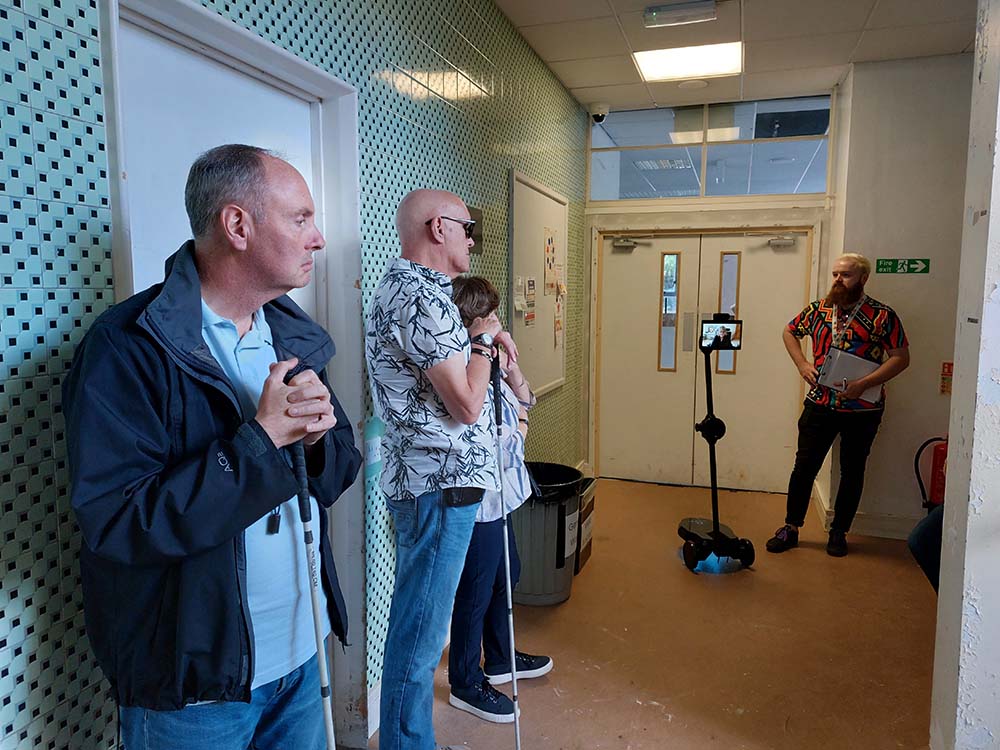
For developers
For developers, architects, planners and system designers, the planning process that you need to go through does not involve Disabled people by design. Building regulations focus more on physical impairments, and when building new sites, structures or buildings, most accessibility considerations are made on paper rather than in operation. There is a disconnect between councils and developers, no professional body to represent Disabled people, and on the occasion that Disabled people are consulted, their collective experience is seen as a scattered selection of individual and personal stories that are difficult to incorporate into design decisions. For local authorities too there is a disconnect between departments when making developments, and the lived experience of Disabled people is not prioritised at initial consultation stage or throughout the build.
The result is inaccessible buildings and public services that don’t properly take into account real life experience of Disabled people – and with this comes a whole array of issues, complaints and reputational damage, causing you to make expensive and time consuming retrofit adjustments.
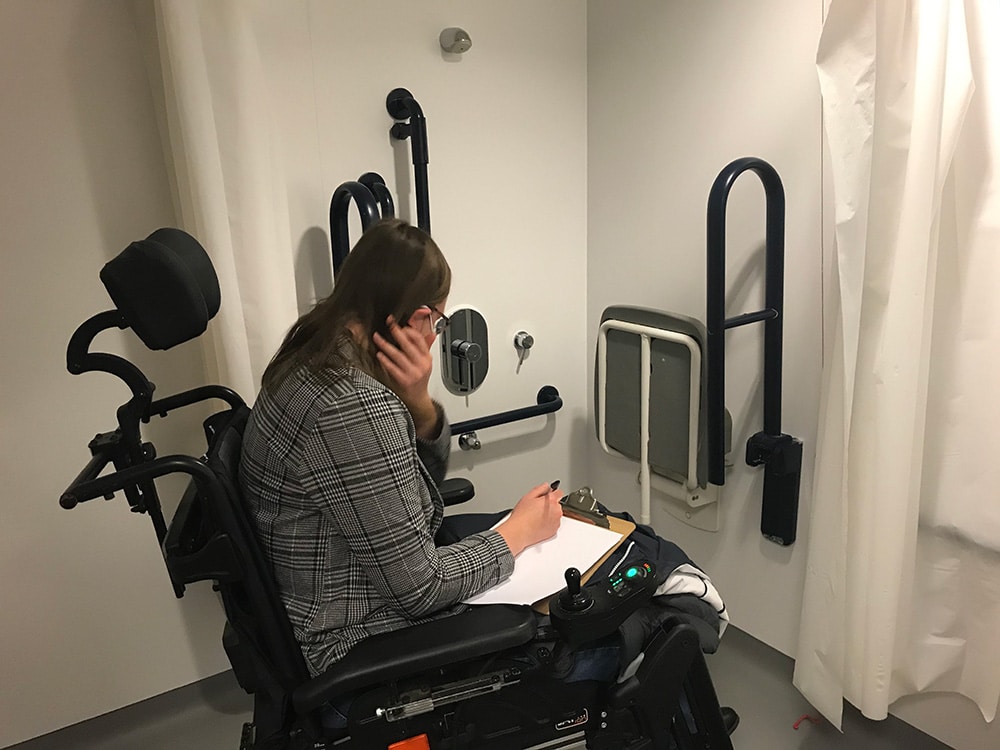
For businesses
For business owners too, there is often a lack of disability awareness in staff recruitment and service provision which results in a smaller pool of candidates and customers. Often, businesses don’t even know that their services are inaccessible until it is too late and complaints arise, which can severely damage reputation and relationships. There is a lack of awareness and education around what disability means in practice, and often accessibility is seen as a box that needs to be ticked. But when it comes to real life trade, experience and employment, it is not these tickbox checklists that matter. A lot of these problems stem down to a widespread attitude problem and an automatic resistance to improving accessibility. People focus on what they can’t do as opposed to what solutions can be made, and perceived costs, time and a lack of concern frequently get in the way. But, these things will only be amplified if the lived experience of disability continues to be ignored.
Bristol Disability Equality Forum points out that non-Disabled can also actually mean ‘not yet Disabled’. As we all age, a huge number of us will end up with impairments, from hearing, sight and mobility impairments to arthritis and dementia. We need to reposition our understanding of what disability is as the reality is that more than one in five of us will be affected by disability at some point in our lives. Whilst people may think that accessibility is not their priority now, it might be in 10 years time or when a friend or family member becomes Disabled.
What can I do?
The good news is that by wholly embracing the power of lived experience early on, you can save yourself time, money and genuinely improve the accessibility of your services to help create a more inclusive world for all.
Across the board, it is crucial to invite people with lived experience of disability into the initial stages of any new developments or business decisions. Do your due diligence when appointing access consultants, and make sure they have lived experience. Next, actually listen and engage with them! Ask questions, take on board their opinions because these are the people that are going to be using your services or buying your property. Engage with multiple people with a range of impairments as everyone has different support needs and requirements. A lot of other things can come into play, like noise and lighting for those with sensory impairments. Ask your Disabled staff what support they need, and deliver it. Get their advice on accessible interviewing processes. Be open to change and be flexible, as everyone’s needs are different.
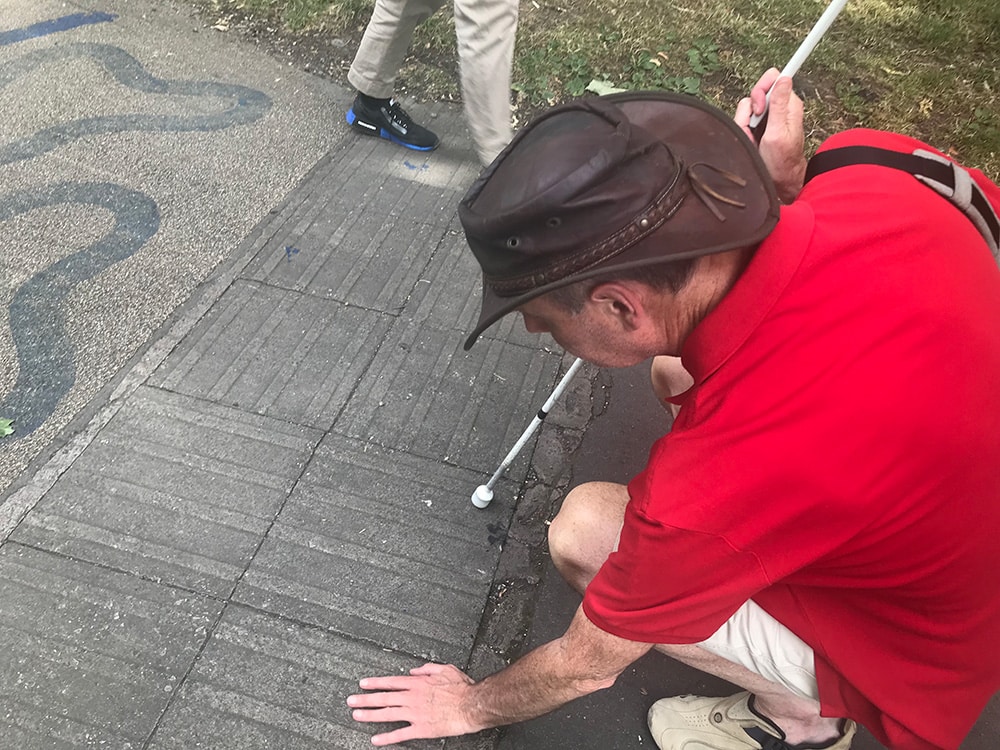
Disabled People’s Organisations like WECIL are a brilliant way to speak to these users. At WECIL, all of our services and support are designed by Disabled people, for Disabled people. Lived experience is integral to what we do, and we don’t make any decisions without consulting those with lived experience. disability.Inc. operates in the same way, and our WAIT group (WECIL’s Access and Inclusion Team) feed into our access audits, consultancy and training services. Working with organisations like us allows you access to lived experience through a professional body with a wide range of impairments represented in our teams. At disability.Inc. we work nationally, but you can also get in touch with your local Disabled People’s Organisation to meet with your local Disabled community.
And if you’re a Disabled person yourself, then you can help with the problem too! We need you to share your voice and lived experience with organisations, local authorities and businesses to enable them to make informed decisions and learn from your perspectives. You are the experts by experience. Get involved with groups like WAIT, our Listening Partnership for young people, or Know Your Rights for the opportunity to influence change on a local, regional and national level, or you can seek out your local DPO.
The value of embracing lived experience
By embracing the power of lived experience in your projects and organisations, you are not only helping tackle disability inequality but will reap the benefits of making your services and buildings more accessible and inclusive.
Save time and money – by speaking to the people that will actually be using your services and you will avoid the cost of retrospective adjustments to correct oversights you might have made. Do it right the first time, and you’ll thank yourself in the long run. Without the insight from lived experience, it can be easy to forget to check the colour contrast on your signage before it is printed, or forget to ensure you have level access flooring in your shop. Consulting users can raise things that you didn’t even think were accessibility issues, helping you shape an accessible building or service and also educating you for future projects.
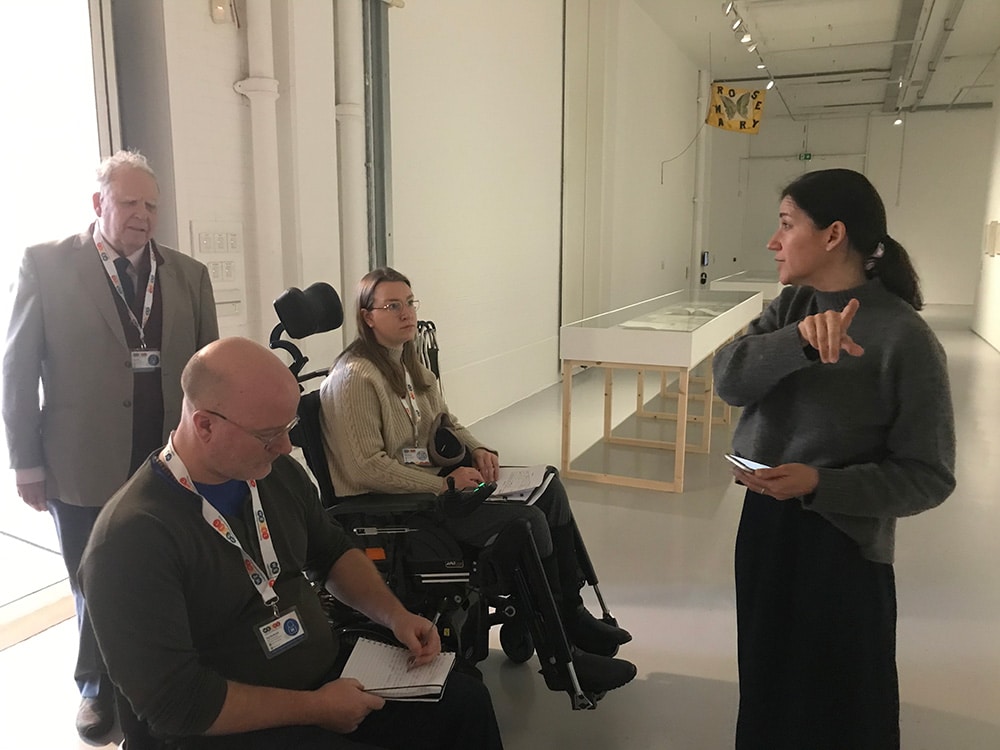
Did you know that businesses lose approximately £2 billion a month by ignoring the needs of Disabled people? By making your services accessible to all, you can also increase your customer base and revenue. The spending power of Disabled people and their households continues to increase and was estimated in 2020 to be worth £274 billion per year to UK business, according to We Are Purple. This is referred to as the Purple Pound, so make the most of this by making your services accessible to all! As well as users themselves, you will attract their friends, families, carers and other customers that may benefit from accessibility requirements such as families with pushchairs and children.
Research proves that there is a huge amount of customer loyalty amongst the Disabled community, so it really is worth investing in your services for this area of the community. Plus, you can ensure you minimise complaints and protect yourself from claims of disability discrimination.
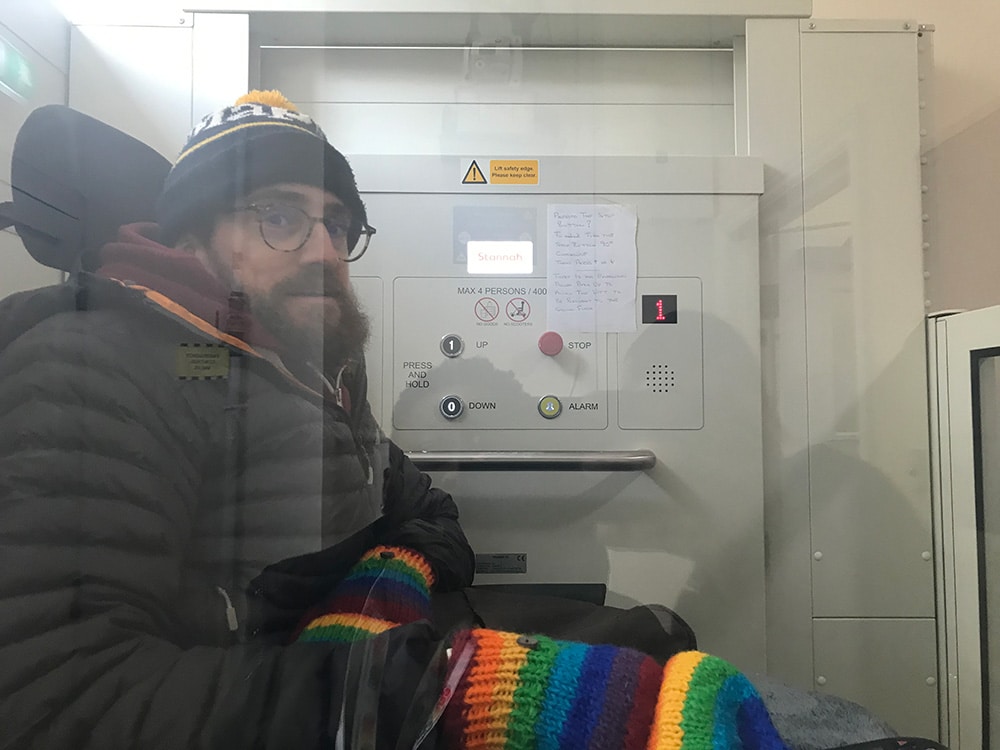
Summary
Everyone has the right to equal access and to be included in all aspects of society. Disabled people are experts by experience, and using lived experience to inform decision making is crucial for successful businesses, developments and communities. The wider disability voice movement uses the saying ‘nothing about us without us’ – and indeed, no decisions should be made without the participation of the very people that will be affected by those decisions.
To start embracing lived experience in your business or project, or to share your lived experience as a Disabled person, then please reach out to Disability.Inc. today.


